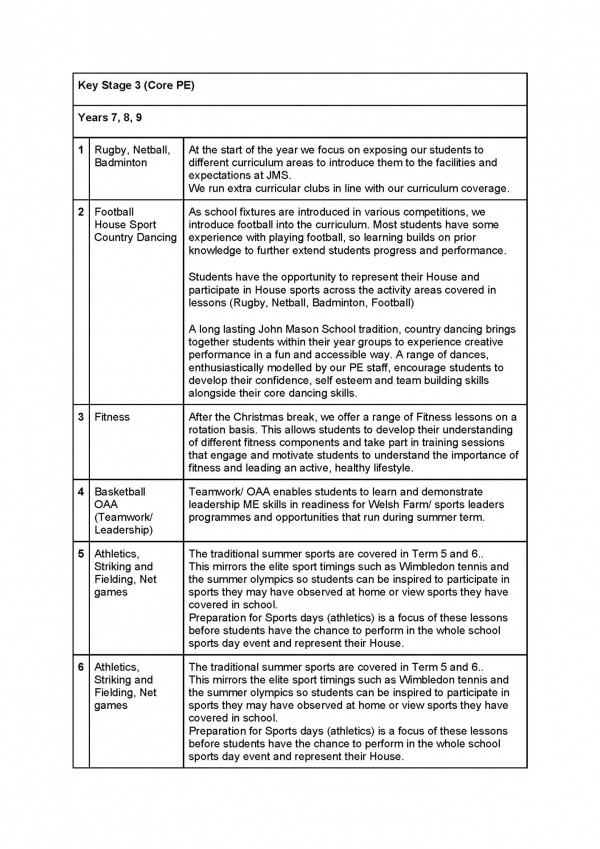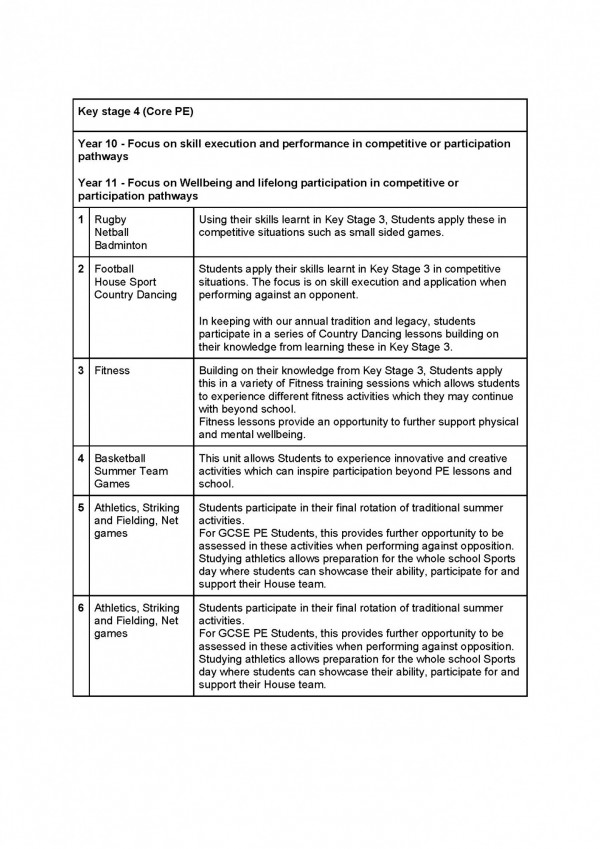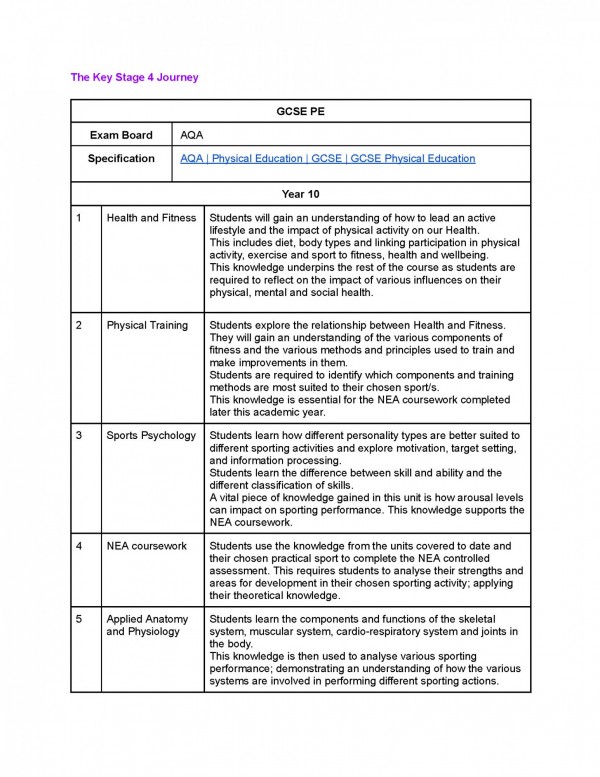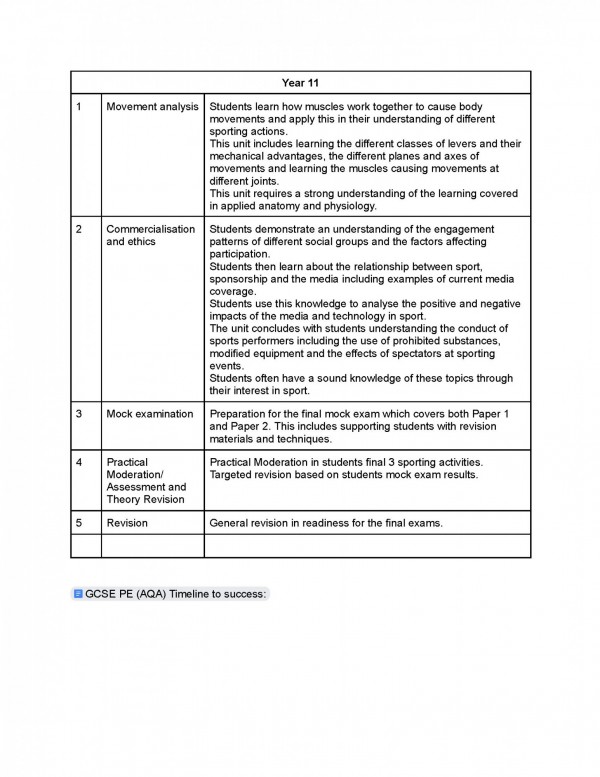PE
Our main aim is to provide all students with an engaging PE curriculum that encourages students to foster a lifelong participation in sport and physical activity.
Our curriculum delivers a broad and balanced experience of activities and encourages all students to develop their sporting performance alongside an understanding of how to maintain their physical, mental and social health.
The Faculty is passionate about providing all students with the opportunity to develop as individuals alongside improving their sporting performance and health. We combine expertise and experience with enthusiasm and utilise our positive relationships with students to ensure they maximise their time in PE lessons.
The teaching in the faculty is creative, adaptive and well-planned taking into account all learners.
We have robust procedures and processes in place to ensure students meet our high expectations and can be successful in their lessons.
The timetabled curriculum is well supported by a diverse range of extra curricular opportunities including lunchtime and after school clubs, sporting fixtures and enrichment experiences.
Our curriculum is sequenced to allow students to build on their prior knowledge and skills and further develop these when they cover different activities.
Physical Education is compulsory until the end of Year 11. The National Curriculum helps students Develop Skills, Make Decisions, Evaluate Performances and choose a Healthy Active Lifestyle.
In Key Stage 3 (Year 7,8,9) Students have 4 hours of PE per fortnight
In Key Stage 4, Students continue with their core PE lessons and have the option to study GCSE PE. The GCSE PE course combines practical performance (40%) with the theoretical aspect (60%).
At Key Stage 5, Students have the chance to study A level PE if they are interested in developing their knowledge further and if they are interested in a career in sport.




